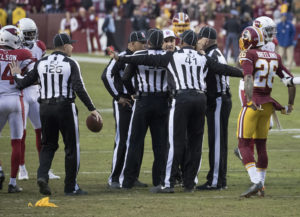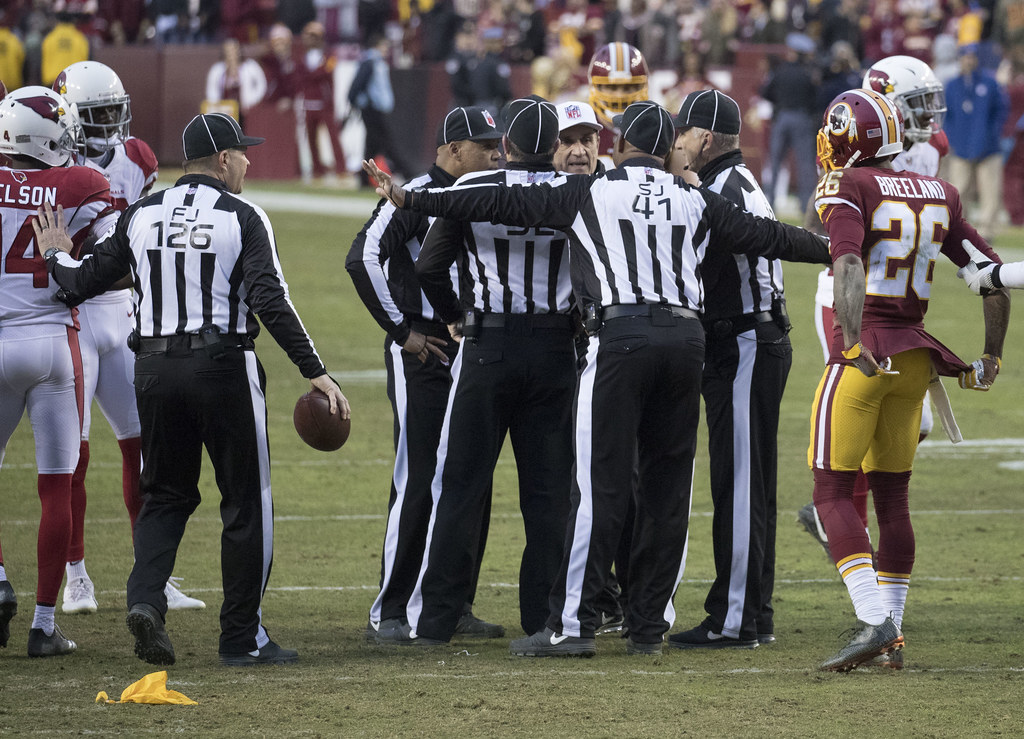
The NFL introduced its taunting penalty more than two decades ago to prevent distractions during games. This season, however, the penalty has become its own distraction.
It’s time for the NFL to bring back the taunt.
Before the season started, NFL Competition Committee Chairman Rick McKay announced a new policy in a video: “Game officials have been instructed to strictly enforce the taunting rules, and players and coaches are reminded that two taunting penalties committed by an individual player will result in automatic disqualification.”
In other words, the league’s taunting rule hadn’t changed, but referees received instructions to enforce it more vigorously.
And that’s what they’ve done: In the second week of this season, referees threw eight flags for taunting, each one a potentially game-changing penalty of 15 yards as well as an automatic first down. This ties the mark for the most taunting penalties in a single week since 2000, which is as far back as the ESPN Stats and Information Database goes. Similarly, the 11 taunting penalties called between the first two weeks were just one shy of the most across any week one and two since 2000.
Taunting usually takes the form of flexing on an opponent after making a significant play or spiking the ball in the general direction of defenders after beating them for a big gain.
Plays like these fire up crowds. They’re why we enjoy football games.
“I love the fire of competition,” Indianapolis Colts coach and former backup quarterback Frank Reich told The Rich Eisen Show. “I want to dominate the opponent in every way: physically, mentally, on the scoreboard. I want to embarrass them. We want to destroy the opponent.”
Fans enjoy watching players express their emotions and show their desire to dominate, especially if it means flexing over opponents whom they have just laid out, or spinning the ball in the turf after picking up a big first down.
One person’s taunt is another’s celebration – an expression of joy that makes this sport joyful to watch.
According to the NFL rule book, part of the purpose for the penalty lies in the use of “baiting or taunting acts or words that may engender ill will between teams.” The league wants to prevent a series of escalating personal attacks that might end with an after-the-play physical altercation. This is reasonable. If I want to see some of the most gifted athletes on the planet brawl, I can watch UFC or the NHL.
Despite this, watching teams and players “engender ill will” makes the viewing experience more exciting for the fans. Referees can make distinctions between real violence and personal rivalries like the back-and-forth duel between cornerback Josh Norman and receiver Odell Beckham Jr. in the 2015-16 season. Storied team rivalries, such as the lopsided affair between the Lions and Packers, adds the stakes of bragging rights to the game.
The NFL has declared war on all of this. Using three hours of your Sunday afternoon to watch the Lions in another winless season is difficult enough. Stopping the game when a player throws up a peace sign on his way to a touchdown or when a player calls his opponent a mean name is just plain unnecessary.
The NFL faces a choice. It can reverse its ban, or it can suffer the taunts of fans who will refer to the NFL by its alternate acronym: the No Fun League.

